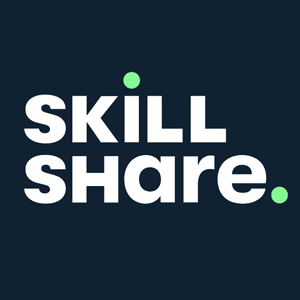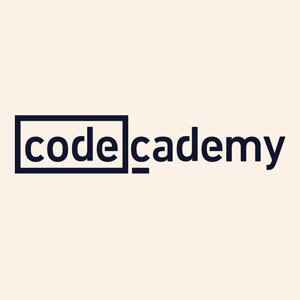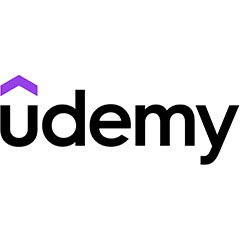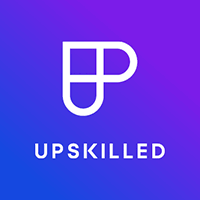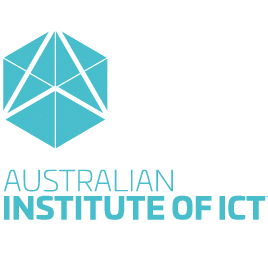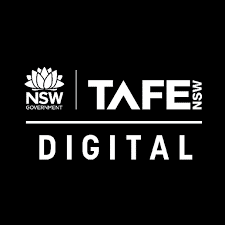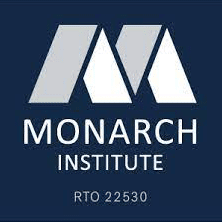Rankings of IT degrees, e-learning programs, free beginner courses, and courses with certificates.

Start or boost a tech career with an IT course online. Job opportunities are available in app development, big data, business analysis, cybersecurity, data science, software development, systems admin, web development, and more.
Whether you're a beginner or a professional, there is something for everyone on these lists. Let's break down the options to choose from, including online university degrees, e-learning courses, and free courses for beginners. Here are 40 of the best online IT courses.
Index of IT Courses Online
Top 10 Training Courses for Beginners
We searched far and wide for the best IT courses for beginners. You can start these extended and short courses anytime. All have high ratings where reported. Some of them are free, or at least free to audit (browse through without assessment). You'll need to pay if you want a certificate of completion.
| Provider | Course Name | Cost | Topic | Duration |
| Coursera | Google IT Support Professional Certificate | A$75/m | Computer hardware, troubleshooting, customer service, networking, operating systems, security; CompTIA A+ exam preparation | 100+ hours |
| Skillshare | Technology Classes Online | A$20/m | IT basics, including web development, HTML, CSS, web design, JavaScript | <15 mins to >60 min |
| edX | IT Fundamentals: Programming | Free / A$109 | Logic behind computer programs, object-oriented programming, data types and structures, file types, database management | 3 weeks, 3–6 hours per week |
| edX | IT Fundamentals: Cybersecurity | Free / A$109 | Intellectual property, privacy and threats in cybersecurity, ICT and globalization, e-commerce, business strategy | 3 weeks, 3–6 hours per week |
| Codeacademy | Introduction to IT | Free | Computer basics, networks, operating systems and applications, software development, databases, cybersecurity | 10 hours |
| CareerFoundry | Data Analytics Short Course | Free | Data cleaning, descriptive statistics, data visualization, storytelling with data | 2.5 hours |
| Udemy | IT for beginners | A$26.99 | Basic IT concepts, software development, front-end and back-end development, application design, databases, cloud computing | 1.5 hours |
| Udemy | Absolute Beginners Guide to Cyber Security | A$16.99 | Cybersecurity concepts and terminology, basic IT concepts, cyber attacks and defense tactics | 4.5 hours |
| Udemy | Microsoft Excel from Beginner to Advanced | A$79.99 | Excel basics, functions, automation, data management, PivotTables, dynamic formulas | 21 hours |
Coursera - Google IT Support Professional Certificate
Google IT Support Professional Certificate is beginner-level preparation for an entry-level IT job in under six months. No degree or experience required. The program has 5 modules to provide foundational IT skills, including computer hardware, troubleshooting, customer service, networking, operating systems, and security. Content is interactive, including hands-on labs and assessments. It's developed by Google employees. The course serves as prep for the CompTIA A+ certification exam. You'll need a Coursera subscription, with as estimated cost of A$75 per month.
Skillshare - Technology Classes Online
Access a wide range of short beginner courses in IT with Skillshare's Online Technology Classes. They range in length from under 15 minutes to over an hour. Categories include web development, programming, HTML, CSS, web design, JavaScript, game design, product management, coding, and data science. Platform memberships cost A$20+ per month after a free trial.
edX – IT Fundamentals: Programming
IT Fundamentals for Business Professionals: Programming is a free, self-paced, 3-week course designed to introduce professionals with no IT background to the basics of software programming. You'll cover topics such as the logic behind computer programs, object-oriented programming, data types and structures, file types, database management and SQL language, and web development concepts including HTML, XML, CSS and JavaScript. Students learn how to interact with IT specialists and pass the CLEP ISCA exam. A verified certificate is available for a A$109 fee. The course is part of a larger series designed to introduce non-IT professionals to the world of Information Technology.
edX – IT Fundamentals: Cybersecurity
IT Fundamentals for Business Professionals: Cybersecurity and social implications is part of a series of 5 introductory courses. The series provides non-technical professionals with basic IT knowledge to interact more effectively with IT specialists in their company. For this course, students explore cybersecurity concepts related to intellectual property, privacy, and threats, as well as the effects of ICT on globalization, e-commerce, and business strategy. The training is self-paced and takes 3 weeks to complete, with 3-6 hours of study per week. It is free to audit (browse through). For a verified certificate, the price is A$109, which includes graded assignments and exams.
Codeacademy – Introduction to IT
Introduction to IT is a free course for beginners. It's self-paced, with approximately 10 hours to complete, and requires no prior knowledge. Topics include computer basics, networks, operating systems and applications, software development, databases, and cybersecurity The program contains six lessons, one project, and seven quizzes, providing hands-on learning through an online interactive platform. Upon completion, a certificate is available with a paid plan, which costs around A$25 per month. The creator, Alex DiStasi, is a curriculum developer in computer science. Reviews from learners are positive, with comments about an interactive and practical nature.
CareerFoundry – Data Analytics Short Course
Data Analytics Short Course is a free 5-day program delivered to your email inbox, with one 15-minute tutorial per day. The course is designed for beginners and covers topics such as data cleaning, descriptive statistics, data visualisation, and storytelling with data. Each tutorial has a video introduction, a written lesson, a hands-on task, and an interactive quiz. It's self-paced and takes around 15 minutes per tutorial. As well as being cost-free and commitment-free, no prerequisites are required. If you love the course and want to pursue a career in data analytics, CareerFoundry offers a full Data Analytics Program that takes you from beginner to a job-ready data analyst in as little as five months.
Udemy – IT for beginners | IT for dummies
IT for beginners | IT for dummies | IT for non-IT is designed for non-technical professionals who work in an IT environment. The aim is to improve your understanding of basic IT concepts and the software development process. Topics include front-end and back-end development, application design, databases, cloud computing, and IoT. The course is taught by Maaike van Putten, a professional software developer and IT trainer. It has a 4.4 rating out of 5 from 1,477 ratings, and has been taken by over 5,200 students. You can study this for a one-time fee of $26.99, with a 30-day money-back guarantee.
Udemy – Absolute Beginners Guide to Cyber Security
Absolute Beginners Guide to Cyber Security 2023 - Part 1 covers topics such as malware, hacking, encryption, phishing, worms, biometrics, and more. The course is intended for those interested in becoming cyber security professionals or students who want to have well-rounded knowledge of the basic concepts used in information security. Priced at A$69.99, the course has a rating of 4.6 out of 5 and has been taken by over 82,000 students. Included are 4.5 hours of on-demand video, 4 articles, 1 downloadable resource, and a certificate of completion.
Udemy – Microsoft Excel from Beginner to Advanced
Microsoft Excel - Excel from Beginner to Advanced is suitable for anyone looking to improve their Excel skills, regardless of prior knowledge. The course includes 21 hours of on-demand video, 12 articles, and 51 downloadable resources. Topics include: building a solid foundation, managing large sets of data, using Excel's most popular functions, creating dynamic reports with PivotTables, auditing Excel worksheet formulas, and automating tasks with Macros and VBA. The course has a 4.7 rating out of 5 from over 357,000 ratings and has been completed by over 1.2 million students. It's available from Udemy for A$79.99.
10 Best Online Learning Platforms for Tech

As an IT professional, continuous learning and upskilling are essential. Online learning platforms have become a popular and flexible way to acquire new skills and knowledge, and there are many options to choose from. Here, we narrow down the top 10 course platforms for tech professionals. User ratings statistics from G2 were used to inform this rankings list.
1. Pluralsight Skills
Pluralsight Skills is a subscription-based platform providing video-based courses and hands-on learning opportunities to IT professionals. The extensive course library includes cloud computing, cybersecurity, and software development. Progress tracking and interactive assessments are included.
2. LinkedIn Learning
LinkedIn Learning offers a vast library of online courses on various IT topics, including web development, data science, and programming. Features include personalised recommendations, certificates of completion, and access to instructors for Q&A.
3. Coursera
Coursera is a well-known site that partners with universities and organisations to offer IT courses, specialisations, and degree programs. Programs span multiple areas of IT, including data science, programming, and cybersecurity.
4. CBT Nuggets
CBT Nuggets offers IT pros access to video courses and virtual labs by subscription. The platform focuses on IT certifications and provides training for cloud computing, network infrastructure, and security. It also offers progress tracking and practice exams.
5. Cloud Academy
Cloud Academy trains users in cloud computing, DevOps, and cybersecurity. Interactive labs, assessments, and quizzes help students improve their skills and prepare for certifications.
6. Udacity
Udacity develops practical skills in areas such as AI, data science, and cloud computing. Programs feature projects, mentor support, and career services.
7. A Cloud Guru
A Cloud Guru delivers subscription-based training for cloud computing professionals. Different cloud platforms and tools are covered, including AWS, Azure, and Google Cloud. It also provides hands-on labs and quizzes for learners to apply their knowledge.
8. ITPro
ITPro is a subscription service that provides on-demand courses, labs, and practice exams. IT fields covered include security, networking, and project management.
9. GoSkills
GoSkills delivers online training in areas such as Excel, project management, and cybersecurity. Courses include practical exercises, quizzes, and progress tracking. Learners can earn certificates of completion.
10. INE
INE has courses on cloud computing, cybersecurity, networking, and more. The platform provides virtual labs, practice exams, and quizzes, along with instructor-led training and boot camps.
10 Best Degree Fields at Australian Universities
Australian universities offer a huge range of courses in IT, including bachelor's and master's degrees, and specialisations in data analytics, artificial intelligence, and cyber security. Online study options provide flexibility and convenience.
Graduates come away with a university degree or other qualification, along with skills and knowledge to excel in their chosen field. Let's explore what's in demand in Australia.
Degrees from Australian Universities
Yes, it is possible to do an IT university course online in Australia. Many universities in Australia offer online programs in IT, including both undergraduate and postgraduate levels. Many programs are delivered entirely online. Others may include a combination of e-learning and on-campus classes.
An estimated 12,732 online learners are enrolled in information technology courses with Australian universities and other tertiary providers. These consist of 8,665 fully online students and another 8,067 doing mixed-mode programs. Source: uCube Higher Education Statistics.
To enroll, you'll typically need to meet the same entry requirements as for on-campus courses, with a sufficient ATAR score in the case of recent school leavers.
Note that international students need to attend campus regularly in order to study on a student visa in Australia. That disqualifies fully online courses as a path to studying abroad in this country.
Related: How to Get Into Uni Without an ATAR
Artificial intelligence is a growing field with foundations in data science and machine learning. AI can be used to solve business problems and deliver customised services.
Whether you want to specialise in AI development or management, or just educate yourself on the technology, AI courses are available to meet your learning needs. These range from short, free courses to master's degrees.
You can start a data analytics career with a Bachelor of Data Science or similar degree. Students learn to structure data, do statistical analysis, solve problems using models and programming, and present results.
A bachelor degree provides core skills for working as a data analyst or scientist. Fantastic career opportunities are available to people skilled in big data and machine learning.
A Bachelor of Information Technology is the career starting point for many IT professionals. The degree gives students solid technical preparation for working in IT.
Topics covered include cloud computing, database management, programming, web development, and systems analysis. Students are also able to major in fields such as business analysis or cyber security.
A solid way to begin a computing career is with a computer science degree, such as a Bachelor of Computer Science or Bachelor of Information Technology with comparable content.
Computer science focuses on computing theory and software development more than customer-facing aspects of IT. Programs are heavy on data structures and mathematics, preparing students for any future technical role. At a postgraduate level, computer science splinters into specialisations.
Cyber security courses can help you take advantage of surging job growth in demand for security expertise.
Specialist bachelor degrees are offered, though you can also go for an IT degree with a major in networks or systems administration. A full professional masters can set you up to get the pick of the best technical jobs available.
Data analysis courses in Australia range from bachelor degrees to graduate certificates, diplomas, and masters. The programs usually integrate technology, statistics, and business skills.
To qualify as a data analyst, consider studying business intelligence and analytics in any computing or IT degree. A Bachelor of Computer Science (Data Science) is a popular pathway to an analytical career.
To build expertise in data analytics, business analytics, data science, or marketing analytics, an online Master's in Analytics from an Australian university may be a great option.
Participants explore topics such as analytics and business, big data management, data visualisation and communication, and predictive analytics, preparing them for lucrative roles.
A data science masters is a strong way to set up a career in the field of big data. Students receive better foundation training than most current data scientists.
Students develop skills for each stage of the data transformation process, from database management to presenting analytics for business decisions. Career opportunities are enormous for people with the maths and coding talent to generate value from data assets.
If you're targeting tech leadership roles, an MBA (Technology Management) may be a good choice. Participants learn strategies around information management, technology adoption, and technological innovation.
You don't need a dedicated technology background to be admitted and do well in these management programs. Technical content is limited.
Strengthen your knowledge and skills in tech with a Master of Technology Management. The online degree is for technically capable people with ambitions to manage technology-based projects and activities
Choose topics such as artificial intelligence, cyber security, databases, machine learning, visual analytics and digital strategy.
10 Certificates and Diplomas from Australia
Launch or further your career in Information Technology with a fully accredited certificate or diploma. You can study online for all of these courses, which we selected for program quality and the value of the qualification.
Each vocational course provides a pathway into an IT career, with qualification strength rising from Cert III, to Cert IV, Diploma, and Advanced Diploma. The Australian Government and state governments often provide subsidies for such programs, including apprenticeship discounts.
TAFE (Technical and Further Education) courses offer practical skills and vocational training for numerous industries, including Information Technology.
TAFE qualifications can be faster and cheaper to obtain than university degrees. They also don't usually require an ATAR for admission. Entry requirements vary. Foundational courses usually have no entry requirements. Certificate and diploma courses may require completion of year 12.
Fees depend on the course level, number of contact hours, and eligibility for government subsidies or loans. The VET Student Loans program can help eligible students cover tuition fees, with repayment is based on taxable income.
TAFE can also provide pathways to university degrees or careers. In some cases, you may receive credit for prior learning and get a head start on your related uni degree.
Source: Seek Learning
Lumify Learn - Certificate III in Information Technology
The ICT30120 Certificate III in Information Technology is a 12-month online program that covers ICT disciplines such as web development, programming, and networking. It includes 12 units and 3 streams: Supporting Clients and Systems, Configure and Support User Environments, and Cyber Security and Development. Fees can be paid as an upfront payment of $3,825, with loan options available. Potential jobs include Help Desk Officer, ICT Operations Support, Network Support Officer, ICT Technician, and Web Developer.
Certificate III in Information Technology – ICT30120
Certificate III in Information Technology (ICT30120) is a versatile Australian qualification that builds skills for different ICT roles. The average duration is ten months, and the average course fee is $4,384. The program consists of 12 units: six core units and six elective units. The core subjects develop foundational skills in areas such as programming, database management, web development, cybersecurity, and project management. The elective units are divided into seven groups, covering areas such as animation, basic cloud computing, basic cyber awareness, digital media, generalist IT support, IT work-ready skills, and networking. There are no entry requirements.
Certificate IV in Cyber Security – Holmesglen
Certificate IV in Cyber Security (22603VIC) is an online, self-paced 16-unit program that takes 18 months part-time to complete. It provides practical skills and knowledge to work in a technical support role in a cyber security operations center. Topics include: identifying and reporting system vulnerabilities, network security basics, web security, and programming in Python. Graduates can work as a cyber security support officer, desktop support technician, security PEN tester, and more. The cost is $9,657 for full fee, $3,785 for government-subsidised, and $757 concession. The course is validated by leading IT companies, including Cisco Networking Academy, Microsoft Academy, and AWS Academy.
Certificate IV in Information Technology (Networking) – Upskilled
ICT40120 Certificate IV in Information Technology (Networking) is a nationally recognised course that prepares you for job roles like network administrator or computer technician. Get trained up in installing and managing small scale networks, troubleshooting and configuring IT equipment, and resolving common issues for clients. The course is offered online, with flexible study options available, and takes an average of 12-18 months to complete. It comprises of 20 units of competency. The course fee is $3,240, with flexible payment plans available. Students are able to connect and build rapport with their online trainers.
Certificate IV in Information Technology – ICT40120
ICT40120 Certificate IV in Information Technology is a more advanced version of the Cert III course, developing a wider range of ICT skills and knowledge. Specialisations are available in database development, database maintenance, gaming development, networking, programming, systems administration support, and web development. The program consists of 7 core units and 13 elective units, with an average duration of 15 months and average course fee of $7,283. You'll gain skills in tech problem-solving, coding, cyber security, IP compliance, and emerging technologies. No entry requirements apply.
Diploma of Information Technology – AIICT
ICT50220 Diploma of Information Technology offers three specialist streams: IT Networking, Website Development, and Cyber Security. The 100% online program can be completed in 18 months and includes 20 units divided into 4 streams. Students build knowledge and skills in categories such as cybersecurity, web development, cloud computing, networking, digital marketing, and more. Students can pay upfront for $5,175, with alternative payment options available. All courses are instructor-led. The program has been developed with industry bodies to meet market demands and prepare students for current and future job opportunities.
Diploma of Information Technology – TAFE Digital
ICT50220 Diploma of Information Technology at TAFE Digital NSW is delivered online and has a duration of 1 year and 6 months. The course covers topics such as strategic planning, software development, network security, and project management. Packaged specialty units are available to meet industry demands. Students are required to commit at least 10 hours per week to class time and an additional 5 hours per week to self-study. The program has a full fee of $10,000 but free courses are possible for NSW residents. Students can access a range of support services to help them succeed, including career counselling and technical assistance.
Diploma of Information Technology – Monarch Institute
Diploma of Information Technology (ICT50220) from Monarch Institute offers two specialisations: front and back-end development, and cyber security and advanced networking. Students get free access to Pluralsight. The diploma is nationally recognised under the Australian Qualifications Framework. With flexible learning options and expert guidance, students can develop the skills that employers want in the rapidly growing field of information technology. The course costs $4,250 upfront (20% discount) or $5,100 paid over 26 weeks. Government funding is available for eligible students in Victoria.
Diploma of Information Technology – ICT50220
ICT50220 Diploma of Information Technology is designed for individuals with significant experience and/or training who are looking to specialise further. Fourteen specialisation are available in fields such as advanced networking, programming, web development, cyber security, and more. The program consists of 20 units, including 6 core units and 14 elective units. While there are no formal entry requirements, students are advantaged from having an IT certificate or experience in using IT networking technologies. The average course fee is $11,342 and the duration is 15 months. The qualification is available as an Australian Apprenticeship.
Advanced Diploma of Information Technology – ICT60220
ICT60220 Advanced Diploma of Information Technology is a higher-level qualification than other TAFE and vocational credentials in this field. Students are trained for more advanced and complex roles in the IT industry. You can develop skills in areas such as advanced data management, cyber security, full-stack web development, programming, IT strategy, systems analysis, and telecommunications network engineering. Programs contain 16 units, including 6 core units and 10 electives. Entry requirements are flexible but may include relevant work experience or previous ICT training. The course typically takes 16 months to complete and costs an average of $11,448.
Recent Posts
-
 Master of Artificial Intelligence
2024-11-17
Master of Artificial Intelligence
2024-11-17
-
 Master of Information Technology
2024-11-17
Master of Information Technology
2024-11-17
-
 Master of Data Science Strategy and Leadership
2024-11-15
Master of Data Science Strategy and Leadership
2024-11-15
-
 Master of Data Science
2024-11-15
Master of Data Science
2024-11-15
-
 Master of Cyber Security
2024-11-15
Master of Cyber Security
2024-11-15

